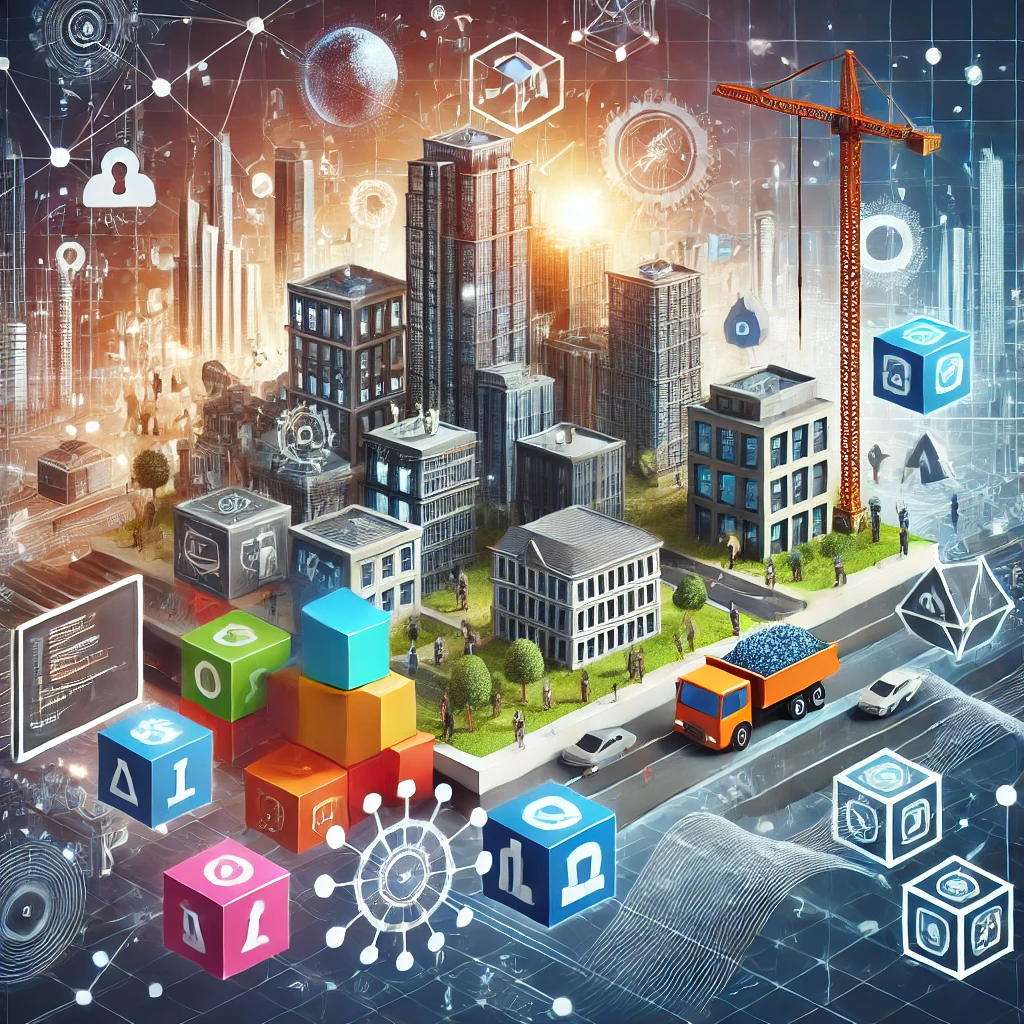Introduction
When we think of building blocks, our minds often drift to the simple toys of childhood. Yet, in today's digital and physical world, building blocks hold much deeper significance. From construction materials that shape cities to modular frameworks that power cutting-edge technologies, these components are essential for creating, learning, and innovating. In this article, we’ll explore various types of building blocks—both literal and metaphorical—and their impact on industries ranging from architecture to software development.
1. Physical Building Blocks: The Foundation of Infrastructure
Physical building blocks are the cornerstone of construction projects, and their importance cannot be overstated. These can range from concrete bricks, modular blocks, to innovative materials like eco-friendly composites. Here are some key aspects:
- Durability and Strength: Traditional building blocks such as bricks and stones provide the foundation for long-lasting infrastructure.
- Modularity and Efficiency: Modular building blocks are gaining traction in the architectural world, allowing for faster, more sustainable building methods.
- Innovation in Materials: Researchers are constantly working on developing building blocks that are more energy-efficient, sustainable, and adaptable to modern demands.
In the construction industry, these building blocks are what make the creation of homes, offices, and even skyscrapers possible. Their design and materials directly impact not just the structure’s longevity but also the environmental footprint.
2. Digital Building Blocks: The Backbone of Technology
In the digital age, building blocks aren't limited to physical materials. Software development is another field where the concept of modularity shines. Here’s how:
- Code Libraries and APIs: Programmers build complex systems by using smaller, reusable blocks of code. These libraries or APIs (Application Programming Interfaces) allow for the integration of various services and functionalities without reinventing the wheel.
- Lego-like Development: Just like with physical blocks, modern programming practices emphasize using pre-built modules or frameworks, enabling faster innovation and reducing errors.
- Blockchain Technology: One of the most disruptive digital “building blocks” of the past decade has been blockchain. As a decentralized system, blockchain acts as a building block for security, trust, and transparency in digital transactions and contracts.
Whether in the realm of web development, AI, or mobile applications, these digital building blocks serve as fundamental elements that enhance functionality, scalability, and ease of use.
3. Educational Building Blocks: Learning Through Construction
The concept of building blocks extends beyond industry and tech into education, where it's often used to foster creativity and problem-solving skills:
- STEM Education: Tools like LEGO and other modular kits help children develop an understanding of science, technology, engineering, and math (STEM) concepts. By using physical or digital building blocks, students can visualize complex ideas and gain hands-on experience.
- Gamified Learning: Educational apps and games that use virtual building blocks allow users to learn in engaging ways. Minecraft, for example, has been incorporated into classrooms to teach subjects ranging from history to mathematics.
- Cognitive Development: Research shows that playing with building blocks at a young age enhances spatial awareness, reasoning, and even language development in children.
By integrating these educational building blocks into learning environments, teachers and parents can support the development of critical thinking and collaboration skills in students.
4. Innovation and the Future: Building Blocks of Tomorrow
The future is full of exciting possibilities for building blocks, both in the physical and digital world. Here are some trends to watch for:
- 3D Printing: With 3D printing technology, building blocks can be customized and produced on demand, making it easier to create bespoke structures in architecture, medicine, and manufacturing.
- Artificial Intelligence: AI systems are being developed using modular building blocks of algorithms, which can be tweaked and combined to create smarter and more efficient solutions.
- Smart Materials: Scientists are working on building blocks made from smart materials that can respond to environmental changes or repair themselves.
These advancements are reshaping how we approach construction, technology, and education. As we continue to innovate, building blocks will remain a fundamental part of our progress.
Conclusion
Whether it’s a child building a tower with blocks or an engineer designing a smart city, building blocks form the backbone of creativity, learning, and innovation. As we look to the future, their role will only grow, driving advancements in both the physical and digital realms. Understanding and harnessing the power of building blocks will allow us to create more sustainable, efficient, and imaginative solutions for the world’s most pressing challenges.
To buy RERA Certified & DTCP Approved Gated Community Villa Open Plots in Andhra Pradesh & Telangana please Contact:
For Sales : 8179712384
Mail : sales@openplots.net
